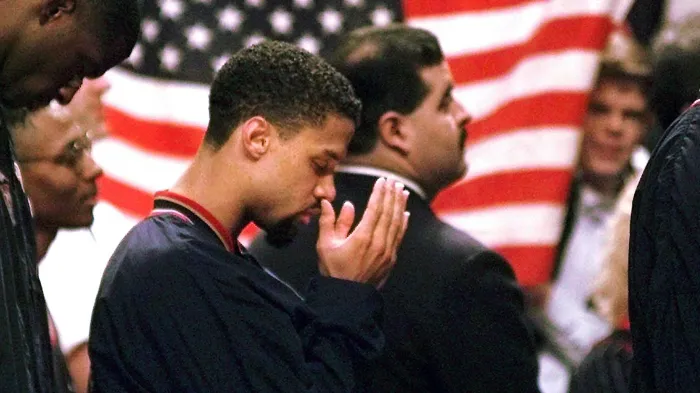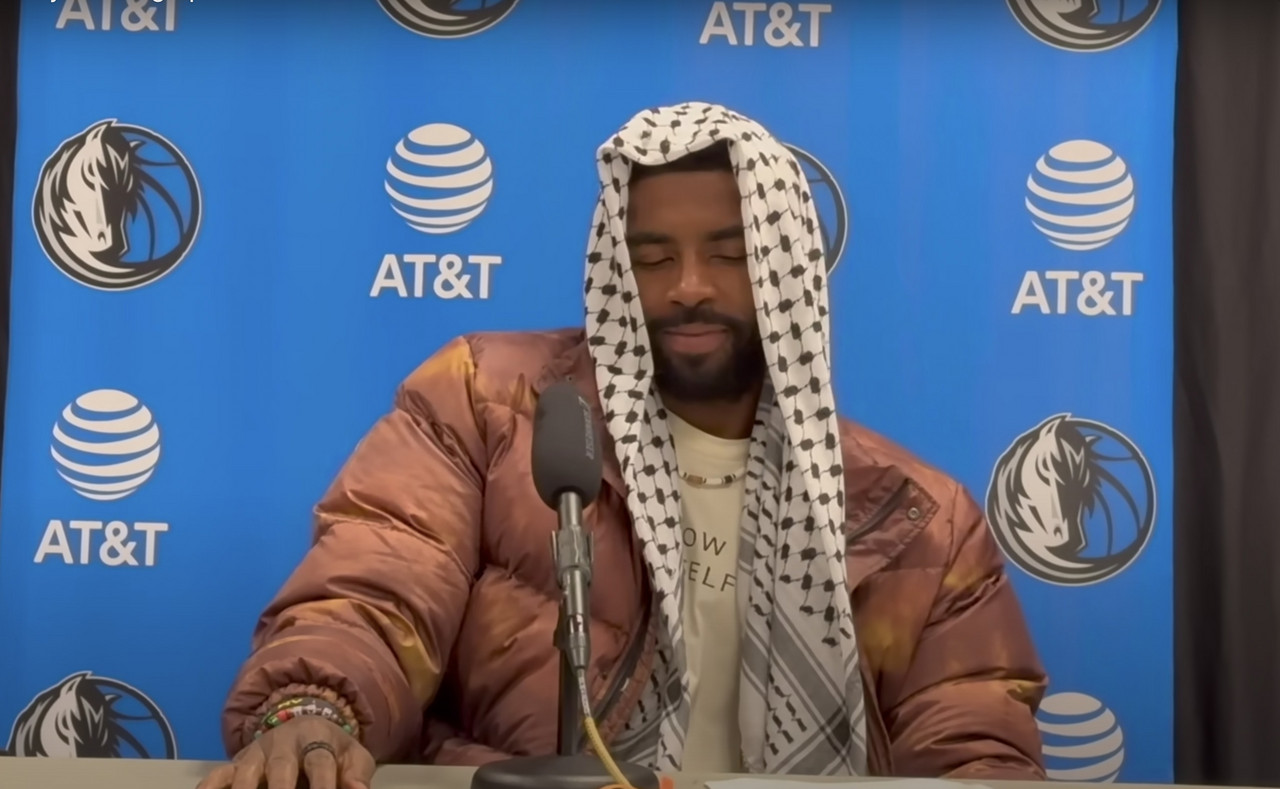In an era where the term "martyr" extends beyond traditional realms, professional athletes, with their transcendent influence, often find themselves as modern-day heroes, standing against the status quo for what they believe is right, even if it means jeopardizing their careers. The recent emergence of Kyrie Irving as a symbol of unwavering conviction mirrors the poignant tale of Mahmoud Abdul-Rauf, painting a canvas of sacrifice, resilience, and a commitment to justice that transcends the hardwood. On November 18th, 2023, Kyrie Irving, the enigmatic NBA star, stepped into the post-game conference wearing a Palestinian Keffiyeh—a powerful and symbolic gesture amidst the ongoing crisis in Gaza. This simple piece of fabric became a mantle of solidarity, draped across the shoulders of a man whose convictions surpassed the boundaries of the basketball court.
Basketball star Kyrie Irving wears Palestinian keffiyeh amid Gaza crisis
— Middle East Monitor (@MiddleEastMnt) November 19, 2023
Australian-American basketball player Kyrie Irving donned the Palestinian keffiyeh, aligning himself in solidarity with the people of Palestine.
This act comes amidst the intensifying Israeli military… pic.twitter.com/FWGoXAkiXA
What is a Keffiyeh?
The Palestinian Keffiyeh, a traditional Palestinian and Arabic scarf, historically worn as a symbol of resistance against oppression, gained new life on Kyrie's shoulders, a visual proclamation against injustice. Despite the widespread support for Palestine among the younger generation, the harsh reality is that governments and corporations, wielders of immense global influence, often align with the Israeli cause. Kyrie's act of defiance, manifested in the choice of this scarf, echoes a sentiment that goes beyond the realm of sports.
Kyrie & Mahmoud
To understand the gravity of Kyrie's stance, one must draw parallels to the story of Mahmoud Abdul-Rauf in 1996. In a moment that forever altered the trajectory of his career, Abdul-Rauf refused to stand for the U.S. national anthem as a protest against the Iraq War. The league's subsequent blackballing robbed him of what could have been an illustrious career, but in the eyes of millions worldwide, he became a symbol of principled resistance. Kyrie's journey resonates with Abdul-Rauf's, two athletes connected by a shared commitment to justice, regardless of personal cost. The Keffiyeh becomes not just a piece of fabric but a banner of justice against unjust societal norms, evoking a spectrum of emotions from admiration to empathy for the burdens these athletes bear.
As we delve into Kyrie's impactful stances, we confront the realization that we may have misunderstood and misjudged him. Beyond the controversy and polarizing narratives, Kyrie Irving emerges not only as a basketball maestro but as a modern-day martyr—a hero unafraid to sacrifice personal glory for the pursuit of justice, echoing the spirit of Mahmoud Abdul-Rauf before him.
In the intricate tapestry of their stories, Kyrie and Mahmoud represent more than athletes; they embody the power of a single individual to challenge the status quo, confront systemic injustice, and become symbols of hope and resilience. Their narratives transcend the confines of sports, weaving into the collective consciousness a reminder that sometimes, heroes arise not in moments of triumph on the court but in the quiet resolve to stand against prevailing norms, no matter the personal toll.


